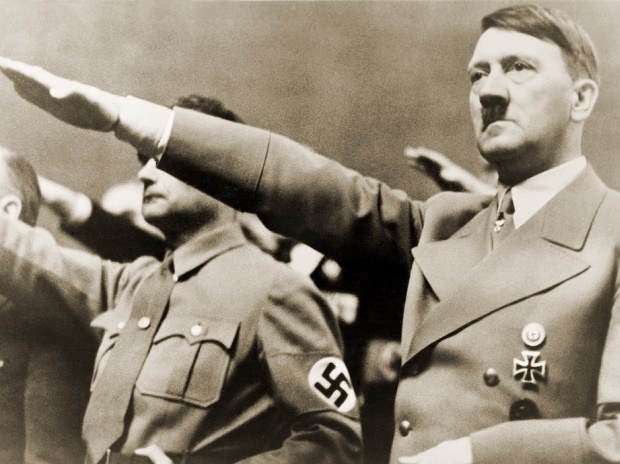Nearly 80 years later, the genre of the Hitler satire appears to have gradually emerged. In 2007, there was the German film, My Fuhrer, castigated by critics, and eight years later, Look Who’s Back, another German movie. This was based on a bestselling novel by author Timur Vermes, on Hitler resurfacing in modern Berlin, and aptly enough given the times we live in, it became a YouTube sensation.
This year, we have New Zealand director Taika Waititi’s Jojo Rabbit, a film that is as divisive as it is delightful. The nearly two-hour black comedy, set in Germany during the Third Reich, played to standing ovations when it had its world premiere at the Toronto International Film Festival or TIFF this September. It was hardly surprising that the film went on to capture the coveted People’s Choice Award at TIFF, often considered a tastemaker for the Oscars. It also expanded rapidly across US theatres after a limited release on October 18. Waititi is a filmmaker who takes humour seriously and has delivered a series of films that offer frame by frame giggles, if not outright laughter, including the superb mockumentary about a group of vampires in Wellington, What We Do In The Shadows, which also premiered at TIFF in 2014. Two years ago, he delivered Thor: Ragnarok, which was not only a critical success but also a worldwide blockbuster, grossing over $850 million. But Jojo Rabbit may be his most dangerous and audacious venture yet. Given that at its centre is Hitler himself as the imaginary friend of a young German boy, it was hardly surprising that TIFF’s Co-head and Artistic Director Cameron Bailey, while presenting it before screenings, sounded a statutory warning of sorts — this may cause the sensitive some shock.
Yes, the usual tropes about humanising or normalising Hitler have already appeared; a curious phenomenon in a time when the terms Hitler and Nazi are dropped incessantly on social media, not just to describe people abhorred for their politics, but even in the most mundane of circumstances. That progression has, in itself, diminished the impact such wickedness ought to evoke, but the politically correct will nevertheless drone on about how a film like this is so very offensive.
In 1997, another comedy describing that timeframe, Life Is Beautiful, from Italian director Roberto Benigni and set within a concentration camp, came under fire for similar reasons. But in less woke times, it still walked away with three Academy Awards, including Best International Feature Film and Best Actor for Benigni.
Coincidentally, like Benigni, director Waititi plays a large role in his own film, literally, as Hitler, since apparently he couldn’t find an actor courageous enough to take on the part. The Kiwi, who is part Maori and part Jewish, takes a fantastic ensemble cast, led by Roman Griffin Davis as Jojo Betzler, the ten-year-old central character, and skewers Hitler, the Nazis and the Gestapo, like never before. The plot involves young Jojo, a member of Hitler Youth and seemingly a committed Nazi, discovering that his progressive mother Rosie (played effectively by Scarlett Johansson), has secreted away a teenaged Jewish girl Elsa (Thomasin McKenzie) in the attic. Jojo is shocked but doesn’t out her for fear of the consequences for his own family. Instead, he quizzes Elsa about the Jews, for his magnum opus on the evils they harbour in their heads. Gradually, though, the demoness becomes his damsel in distress, as Waititi adds a sweet, and funny, layer of puppy love to the script. Not that Elsa is woebegone, she has plenty of chutzpah to display and McKenzie brings forth that spirit with elan. Ultimately, the film is about better selves prevailing in the worst of times. Bailey described the film as a “singular and essential response to both history and our current moment”.
Jojo Rabbit should be a serious contender for Best Film when the Oscars roll around next year. Whether it actually does so will depend on the prejudices of the members of the Academy and on whether or not they cave to the campaign of criticism that the film has already received from all varieties of stalking heads that proliferate these days.
Not that there’s much funny about the return of anti-Semitism in the West. From the Labour Party in England to white supremacists in the United States, and leftists and jihadis in Europe, the familiar calumny has been rejuvenated. As a film like Jojo Rabbit revisits a period of similar bigotry, and offers its promoters for ridicule, it is a timely reminder that we learn little from history.
First Published: Sat, November 09 2019. 21:51 IST
read the full story about Jojo Rabbit: Feel-good comedy on Hitler, reminds us of the times we live in
#theheadlines #breakingnews #headlinenews #newstoday #latestnews #aajtak #ndtv #timesofindia #indiannews





